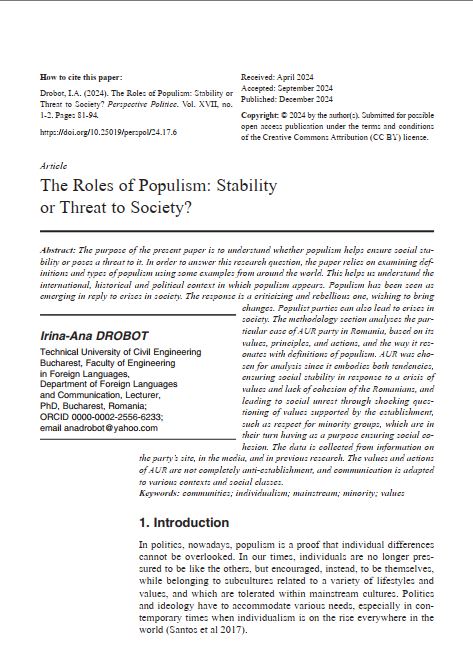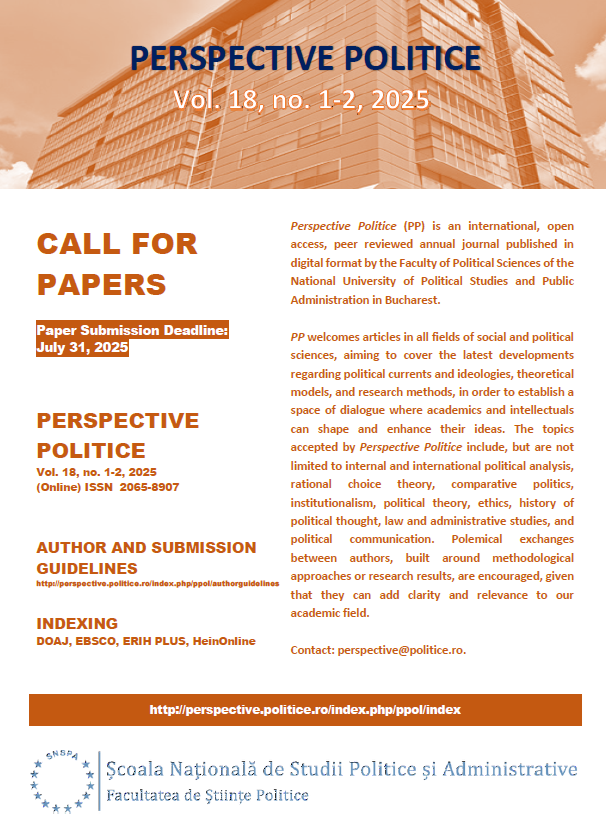The Roles of Populism: Stability or Threat to Society?
Abstract
The purpose of the present paper is to understand whether populism helps ensure social stability or poses a threat to it. In order to answer this research question, the paper relies on examining definitions and types of populism using some examples from around the world. This helps us understand the international, historical and political context in which populism appears. Populism has been seen as emerging in reply to crises in society. The response is a criticizing and rebellious one, wishing to bring changes. Populist parties can also lead to crises in society. The methodology section analyses the particular case of AUR party in Romania, based on its values, principles, and actions, and the way it resonates with definitions of populism. AUR was chosen for analysis since it embodies both tendencies, ensuring social stability in response to a crisis of values and lack of cohesion of the Romanians, and leading to social unrest through shocking questioning of values supported by the establishment, such as respect for minority groups, which are in their turn having as a purpose ensuring social cohesion. The data is collected from information on the party’s site, in the media, and in previous research. The values and actions of AUR are not completely anti-establishment, and communication is adapted to various contexts and social classes.

Downloads
Published
Issue
Section
License
Copyright (c) 2024 Irina-Ana DROBOT

This work is licensed under a Creative Commons Attribution-NonCommercial-ShareAlike 4.0 International License.



